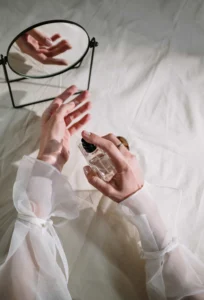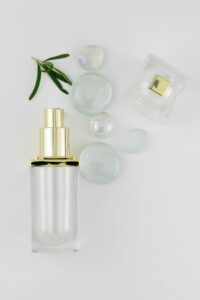WHY DOES MY FRAGRANCE NOT LAST LONG? UNRAVELING THE MYSTERY
Ever noticed your favorite fragrance disappearing too soon? You’re not alone. Let’s delve into the intricacies of fragrance and uncover the secrets behind why your perfume or cologne may not last as long as you’d like.
Your Body, Your Scent: The Chemistry of Fragrance
The Role of Weather and Climate
Fragrance Ingredients: The Heart of the Matter
Application Techniques: Making Your Scent Last
Layering for Longevity
Regular Maintenance
While fragrances are designed to bring joy through their enchanting scents, it’s important to acknowledge that they have a shelf life. Over time, the ingredients in a fragrance can deteriorate, affecting both the scent and longevity. To ensure your fragrances stay fresh and long-lasting, proper storage is essential.
Store your fragrances in a cool, dark place away from direct sunlight and extreme temperatures. Exposure to heat and light can accelerate the degradation of fragrance compounds, leading to alterations in scent characteristics. Additionally, keep the bottles tightly sealed to prevent unnecessary exposure to air, which can also contribute to the breakdown of fragrance components.
If you’ve had a bottle of fragrance for several years, it might be time to consider replacing it with a new one. While some fragrances can last for an extended period, they are not immune to the natural processes of ageing. Fresh, well-preserved fragrances ensure that you experience the intended scent profile and longevity.
In conclusion, the longevity of a fragrance is a nuanced interplay of your body’s chemistry, environmental factors, composition, application techniques, and even the age of the product. Understanding these variables empowers you to make informed choices when selecting and enjoying fragrances that last as long as you desire, allowing you to savour your signature scent throughout the day.


